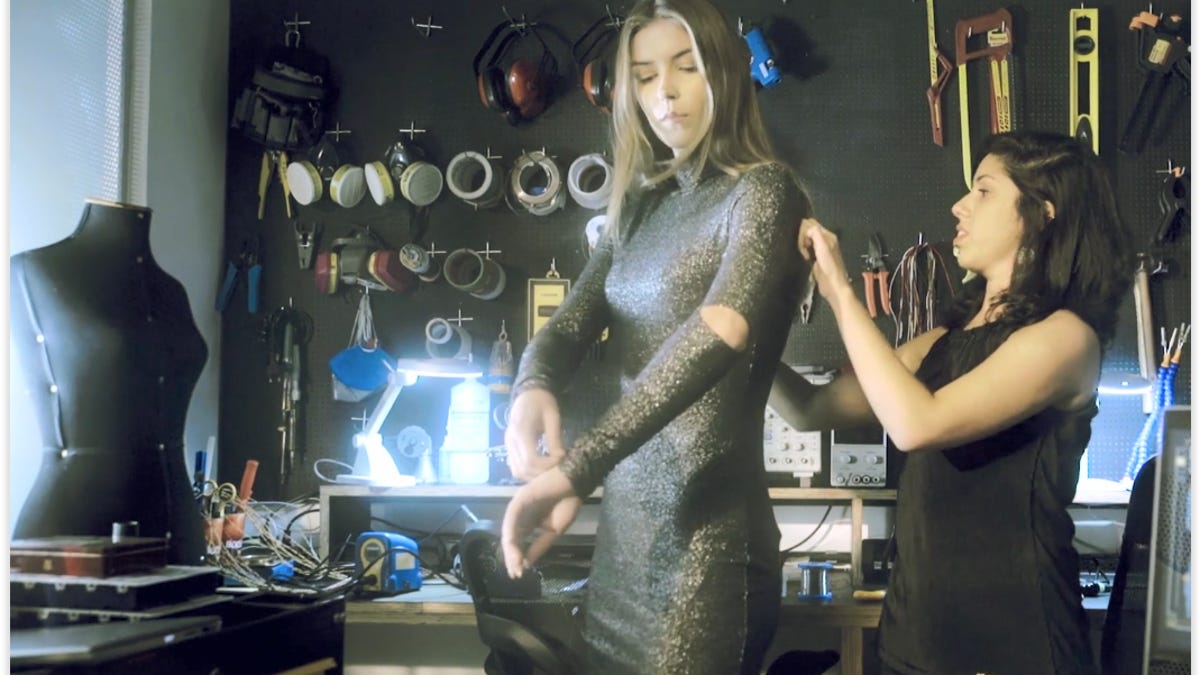This dress measures how many times the wearer was groped
It's a frock for the #MeToo age.
Too often, women who tell stories of being sexually harassed are met with doubt or disbelief. Now, they have a smart dress to back them up.
The Dress For Respect by advertising agency Ogilvy has sensors sewn in that measure where on the body, and when, the wearer is touched. The information gets transferred via Wi-Fi to a control unit in real time.
"It gives us a broader vision of harassment," said Nagib Nassif, a developer who worked on the garment's technology.
The dress got a test run in Brazil, where 86 percent of women have been harassed in nightclubs, according to data from Think Olga, a feminist collective founded by a Brazilian journalist.
Three women wore the sparkly conceptual dress to a Sao Paulo club in one night, and the data showed they were touched nonconsensually 157 times in less than four hours. That averages more than 40 touches per hour.
The video below shows the women rejecting men's advances, both by pushing them away and telling them to stop touching.
While smart clothes that do everything from change colors to unlock phones are showing up on catwalks with increasing frequency, a dress that requires software for the full fashion experience isn't exactly practical. Plus, this dress can't delineate between welcome and unwanted touches without the input of the wearer or a watchful camera.
But Ogilvy's campaign, a collaboration with Schweppes Brazil that won a prestigious Glass Lion award at Cannes this year, is more about raising awareness in the era of #MeToo than policing unwanted advances.
At the end of the video, the women who wore the dress for the experiment share some advice to anyone who might reach out and touch someone inappropriately.
"Try to approach calmly, to talk without touching," suggests Juliana Schultz. Says Luisa Castro, "I'm an interesting person. I'm worth five minutes of talking."
CNET's Holiday Gift Guide: The place to find the best tech gifts for 2018.
Culture: Your hub for everything from film and television to music, comics, toys and sports.


